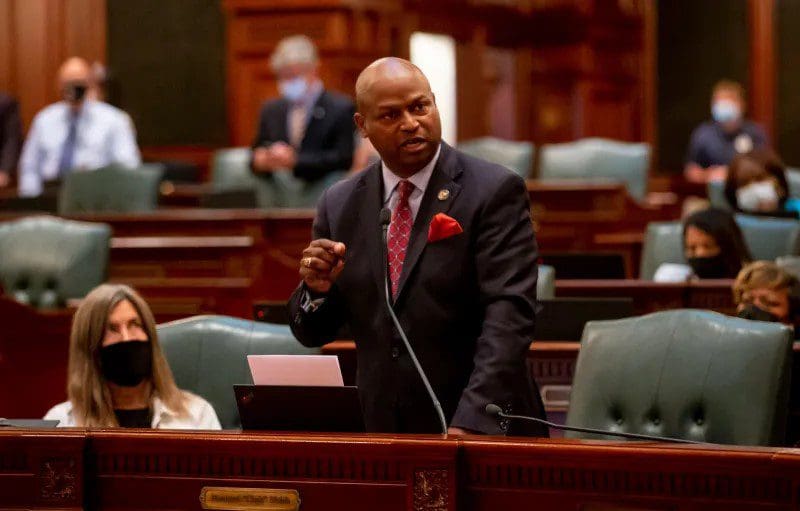
State Legislative Staffers Across the U.S. Push to Unionize
Illinois House Speaker Emanuel “Chris” Welch says he wants the state’s legislative staff to be allowed to unionize. The Democrat authored a bill he says would allow that last week, even though it’s unusual for the house speaker to write their own legislation. “I filed it in my name because I want folks to know that I’m 10,000% behind this effort,” he says.
The move took some of his employees by surprise. In the weeks leading up to the filing, more than 20 staffers in his office—who are part of the Illinois Legislative Staff Association (ILSA)—had said Welch would not engage with them around their effort to unionize despite his pro-labor rhetoric. Welch had not filled the employees in on his plans to file the bill, although he says his office had been speaking with them since November.
“We’re not going to negotiate for anything crazy. We’re not going to ask for million-dollar salaries,” says Kelly Kupris, a policy analyst focused on K-12 education and a member of ILSA’s organizing committee. “We just want to be treated what we’re worth, listened to, and know that we have a safe workplace that is able to put food on the table at the end of the day.”
The push to allow legislative staffers to unionize is sweeping across different states, to mixed results. In California, the legislature recently approved a similar measure after at least five tries; it is now awaiting a potential signature from the governor. In New York, senate staffers launched a legislative workers group last year to attempt to unionize. Recent efforts to unionize in Washington, Massachusetts, Minnesota and New Hampshire have not succeeded so far. Oregon became the first state in the nation to allow legislative staff to unionize in 2021, although Maine allowed nonpartisan legislative employees that right in the late 1990s.
